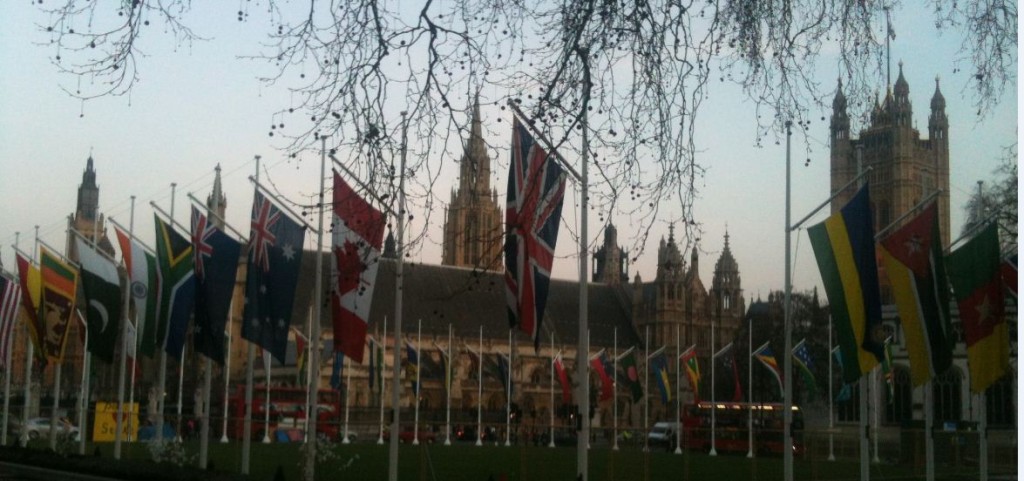NB: this post is by Tim Hewish, my Parliamentary Researcher, and the views expressed are his own.
Commonwealth Day passed the world by yesterday. As a network of nearly a third of the world’s population and with the Queen as its Head, you would think that the British would notice.
The Commonwealth represents 53 nations across the globe and spans all habitable continents with English as its lingua franca and most of its legal system based on Common Law.
I mention the Commonwealth not so much as to highlight our nation’s historical memory gap, but to show our worrying future gap. With Europe’s total growth forecast to be -0.4% this year, twinned with a collapsing political currency and a labour force shrinking by 54 million by 2050 (a loss equivalent to the workforce of Germany) it is time for the UK not to look just to the Continent but to go global.
Meanwhile, the Commonwealth is expanding with a projected total growth of 3.7%, even higher in its African and Asian states; its labour force will increase by 60% or 825 million by 2050. With a burgeoning Commonwealth middle class, Britain is well placed to deliver them high end goods and services.
What stops us is Britain’s tie to the EU customs union which means we are unable to trade freely with other nations around the world. By treaty it forbids us. We have no seat at the World Trade Organisation and have surrendered our trading sovereignty to Brussels. Ironically, if we wanted to trade freely with Australia or Canada we would have to go through Europe although thankfully we haven’t yet capitulated our investment arm.
There are those who say if we left the EU we would be on the periphery of Europe. I say to them, we would be on the doorstep of the world. The Commonwealth has nations in key strategic economic blocs: One nation in NAFTA; Six in the Cairns Agricultural Group; 5 in the ASEAN-Aus-NZ agreement; 12 Caribbean nations in CARICOM; three nations (for now) in the EU; seven in APEC; and two current and two negotiating in the Trans-Pacific Partnership heralded as the new up and coming trading platform. The list goes on and is impressive.
All this goes to show that closer economic ties need not be based around fixed and rigid custom unions. For example, Australia and New Zealand are free to make numerous trade agreements. So why can’t the UK do likewise? It’s not as if she would be on her own. In a networked world it is beneficial to have friends in many places.
Just as on Facebook, wouldn’t you want 53 friends with something genuine in common rather than 25 who don’t really like you and send you invites to parties they can’t afford to pay for and then expect you to subsidise? I am not even sure if we can poke them anymore to get their attention as their spending binge is causing a massive hangover.
The Commonwealth is adding friends all the time. Cameroon and Rwanda joined a few years ago while Algeria, Madagascar, a number of Gulf States, and South Sudan have have shown an interest in joining. Others like Japan, Hong Kong and China are keen on some sort of observer states. The Commonwealth is certainly trending higher than before.
With the inaugural All Party Parliamentary Group on the Commonwealth taking place this afternoon; an ongoing Foreign Affairs Select Committee enquiry into the role and future of the Commonwealth; and it being Jubilee year, it is now time to wake up and revisit the Commonwealth before economic events pass us by.



















